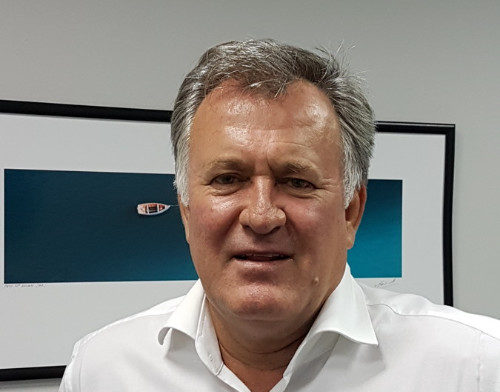Farsons Group CEO Norman Aquilina has called for a broader discussion about wage growth that goes beyond Cost Of Living Adjustment (COLA) considerations, which is projected to reach €13 per week in 2024, and called for bold measures to address the tight labour market.
He was asked to comment after the Malta Employers’ Association (MEA) released its pre-Budget document on Monday, in which it noted that the 2024 projected COLA increase is “unprecedented” and will place burdens on employers. This follows from a wage inflation survey carried out by the MEA in July 2023 which found that 56 per cent of survey respondents, with a sample size of around 250 businesses, faced higher wage inflation than the inflation registered in Malta this year.
To mitigate the impacts of the expected COLA for 2024, the MEA proposed changes to tax bands so that €3 of the weekly figure is compensated through tax deductions.
Following this, MaltaCEOs.mt reached out to Mr Aquilina, who is at the helm of one of Malta’s largest companies, to understand the impact of a €13 COLA adjustment, and whether such incentives go far enough. As at the end of January 2023, Farsons Group employed an average of 910 full-time equivalent employees, meaning a €13 weekly adjustment to its wage bill would see it shell out roughly €47,000 extra each month.
The MEA proposal would see around €10,000 (23%) taken off the monthly COLA wage bill via tax deductions.
“One of the consequences of elevated inflationary pressure is higher salary demands. Apart from price increases, this is a reality we all must recognise. Nevertheless, it needs to be well managed to avoid risks of a wage-price spiral which can hurt both employers and employees,” Mr Aquilina told MaltaCEOs.mt.
He went on to muse that any measures to mitigate COLA increases should be “welcomed”, but, as the MEA has proposed, should be done in a way that alleviates the burden on employers, while ensuring that “employees are not short-changed on any cost-of-living entitlement”.
He noted that while it is “perfectly understandable” to focus on COLA ahead of Budget 2024, his main concern, when taking a wider and longer view, is more about the “notable wage growth which many businesses are experiencing, which more often goes well beyond COLA considerations”.
“Of course, there will be instances where wage growth is justified and affordable, but likewise there will be instances where it will not,” he remarked.
As a result, this highlights the importance of relativity between absorbing wage growth while still reaching higher productivity levels. Mr Aquilina explained that this “more comprehensive approach”, which relates to businesses’ competitiveness more directly, “is what is needed”.
Indeed, the aforementioned MEA July 2023 survey categorically found that wage increases are not being matched by productivity increases – a key indicator that Malta’s competitiveness is being eroded.
Mr Aquilina stated that in this context, Finance Minister Clyde Caruana “would do well to include, within the forthcoming Budget, some badly needed bold measures to address the tightness in our labour market”.
“While recognising the need for our policymakers to deal with any prevalent issues that may require immediate attention, it is important to also take a strategic approach which supports, both in the short and long term, the sustainable economic advancement and social wellbeing of all,” Mr Aquilina concluded.
And how does a tight labour market fit into a recent political decision to limit the number of third country nationals entering Malta?
In recent weeks, Government has come on record to confirm that a policy shift has taken place to reverse Malta’s dependency on third-country nationals – better known as TCNs – and businesses whose model is based on a never-ending supply of TCN workers, who often end up being exploited, will no longer be tolerated. Prime Minister Robert Abela also confirmed that new legislation was in the offing to regulate employment agencies, otherwise known as temping agencies, to curb any abuse.
Commenting on this issue recently via his LinkedIn network, Mr Aquilina called for well-timed and clearly structured regulations, and added that the finger cannot simply be pointed at businesses for taking advantage.
“The importation of TCNs is driven by the fact that there remains insufficient availability of workers within sections of our labour market, and not simply dependent on cost considerations.
“Indeed we have a paradoxical situation whereby the authorities continue to harp about imported cheap labour, yet seemingly fail to also acknowledge that many businesses are having to deal with notable wage growth.
“The growing importation of TCNs is the result of a tight labour market and symptomatic of an unsustainable economic model and consequently needs to be tackled within this broader perspective.”
Featured Image:
Farsons Group CEO Norman Aquilina
MedservRegis CEO optimistic amid ‘resurgence in market appetite’ for investment in oil and gas projects
David S. O’Connor was commenting in the group’s Annual Report, in which it was revealed that it made €17.5 million ...
Erich Schumacher to become FIMBank Group Chief Operations Officer
He previously served as Non-Executive Director at the bank for close to two years.
Jean Chapelle Paleologo named new Frank Salt Real Estate Managing Director
He is highly experienced in sales and wealth management within the international financial services sector.
APS CEO anticipates improved performance in rest of 2024 after drop in first quarter pre-tax profit
During the first quarter of 2024, APS Bank reported €5 million in pre-tax profit, 63.5% lower than the same period ...











